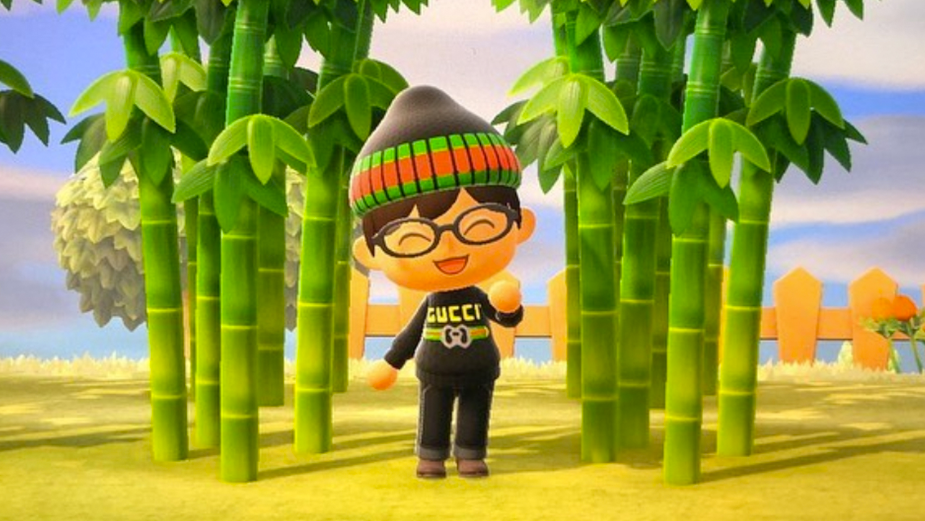
One-Up Your Game: How Brands Can Activate in the World of Gaming

Gaming’s foundation in at-home culture has helped shine a brighter spotlight on the category during a time when we’re all more consistently confined to our houses. A report from Verizon showed gaming usage in the U.S. has increased 75% since 'stay-at-home' began and in China, mobile game downloads increased by 62% on Apple’s App Store in February, when the country was in its coronavirus quarantine period.
While it’s certainly true that gaming (and the eSports sub-genre) have experienced lifts and increased marketing interest over the last few months, the category has long been a versatile one with brand legs that go beyond the obvious endemic categories of tech. As the genre continues to mature and expand, brands from beauty to music to lifestyle have opportunities at various levels to engage in the gaming space whether through its platforms, its influencers or its audiences.
While quarantine may have thrust the gaming genre into greater focus, the resilience and viability of the category will ensure it thrives long after this pandemic ends. Now is the time for brands to think ahead as to how they can engage authentically within the gaming space, reaching its diverse, passionate and savvy audience through its wide pool of influencers.
Live Events Don’t Have to Mean In-Person
As a genre anchored in creating virtual worlds, gaming platforms have offered a digital alternative in a time when in-person activations like large music festivals and sporting events are not possible. The increased experimentation within gaming has seen brands and talent finding opportunities to host events within virtual environments that can be accessed by fans via streaming platforms like Twitch. Travis Scott’s April 23rd 'concert' in the popular game Fortnite received over 27 million viewers and was followed up by another concert by international DJ Deadmau5. The following day, Charli XCX headlined Minecraft’s Square Garden music festival, which was designed to raise money for Feeding America and saw 130,000 attendees.
Outside the world of music, U.S. senator Alexandria Ocasio-Cortez notably utilised the newly popular 'Animal Crossing: New Horizons' - which hit over 13 million units in sales within six weeks of release - to virtually visit her constituents. The fact that these major milestones don’t even involve gaming-endemic talent, but rather broader categories of personalities shows the breadth of reach within the gaming world.
Even outside of the context of a pandemic, consumers frequently desire both personal connection and a level of escapism - virtual environments in the vein of Fortnite, Minecraft and Animal Crossing provide a unique mix of the two. Brands might consider partnering with talent and game developers for festival or concert-esque events which allow for vastly larger capacities (global vs. limitations set by a physical space) and generally lower overhead costs (again, due to the lack of needing a physical footprint).
Gaming with Cause
Consumers across the board, and particularly in younger generations, are increasingly demanding that the brands they support align with the causes they care about. To that end, one of the most prominent aspects of gaming influencer culture – live-streaming – is already structured to support goodwill efforts. Since the early days of live-streaming, gamers have logged on to play in support of their causes-of-choice. Top influencers like PewDiePie, Markiplier and Ninja have long utilised charity live-streams to raise millions of dollars for organisations from Stand Up 2 Cancer to My Friend’s Place to RED.
For those unfamiliar, a gaming charity live-stream functions similarly to a traditional telethon. Gaming influencers go live on platforms such as Twitch with viewers tuning in to watch their favourite gamers play for hours. During the live-stream, the influencers will provide information about the charity(ies) they are playing for, and live mentions of any sponsors as well as encouraging donations from viewers.
Live-streams anchored by trusted influencers in the space have the benefit of leveraging the direct and authentic relationships these talents have built with their fans. These individuals also have a unique skillset in balancing engaging performance, real-time conversations and delivering pertinent information to a captivated and highly interactive audience. While gaming influencers have further leveraged this skillset in their own podcasts, presenting at industry events and in other formats, brands have not regularly tapped into this potential in a meaningful or consistent manner, leaving a wealth of opportunity on the table.
In-Game Partnership to In-Real-Life Purchases
The buying power of gaming and eSports audiences has been a topic of discussion even before the world changed as a result of the coronavirus pandemic. In 2019, Newzoo evaluated the market value of the global gaming industry to be approximately $150 billion. Further, 59% of eSports fans said they tend to buy products they see advertised in conjunction with eSports (2019 Global Web Index survey) and the category is frequently recognised as a lucrative marketing opportunity for consumer brands such as Nike, MasterCard and State Farm. That potential also extends to brands in categories that might not traditionally be considered relevant to the gaming space such as beauty and fashion.
By leveraging the virtual environments within games themselves, these open world platforms provide a wider opportunity for brands and talent across various categories to organically engage with gaming audiences in unexpected ways. Iconic fashion brands such as Gucci, Nike and Supreme have or plan to release their own official 'clothing' in the virtual world of 'Animal Crossings: New Horizons', which has led engagement (both paid and unpaid) from influencers such as artist Takashi Murakami, who express themselves by outfitting characters in digital styles.
This provides an organic avenue for non-endemic brands and talent to engage with gaming audiences and culture, further broadening and normalising the category. And, as brands continue to realise the true diversity of the category outside of just male audiences (with reports showing 40% of gamers identify as women), verticals such as makeup have found success engaging female gaming influencers in meaningful ways. Cosmetics brand Benefit Cosmetics has leveraged female gamers in video and other social content featuring frank discussions about life as an influencer and use of the brand’s products to create unique 'game faces'.
Brands looking to tap into the vast, diverse facets of the gaming world should remember that these platforms and properties are not merely assets to be bought but rather larger worlds and lifestyles meant to be understood and lived in. Gamers and their audiences spend hours on end connecting and communicating in these immersive worlds. The gaming community, more so than any other, will not be shy about calling out an influencer or brand for a partnership they feel is disingenuous or disruptive to their established ecosystem. A successful and organic branded endeavour will enhance and add value to the gaming experience – not merely push into it.










